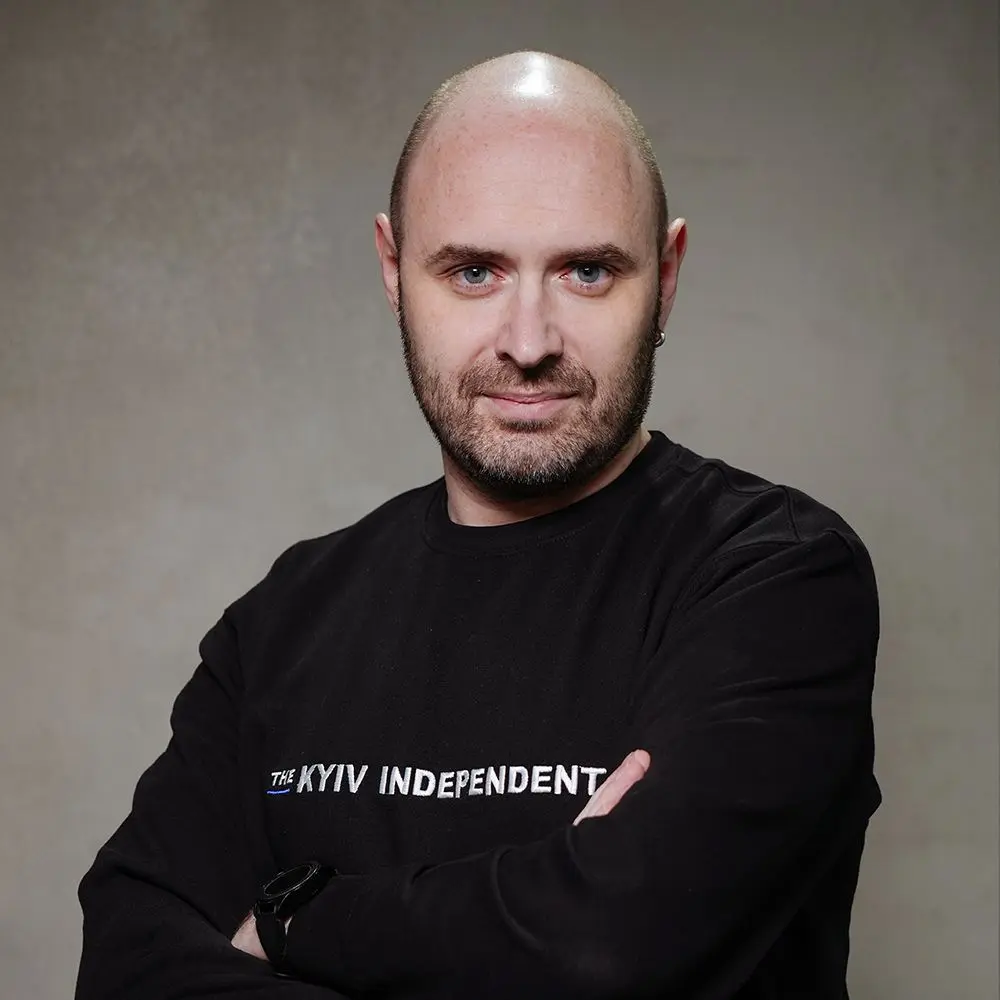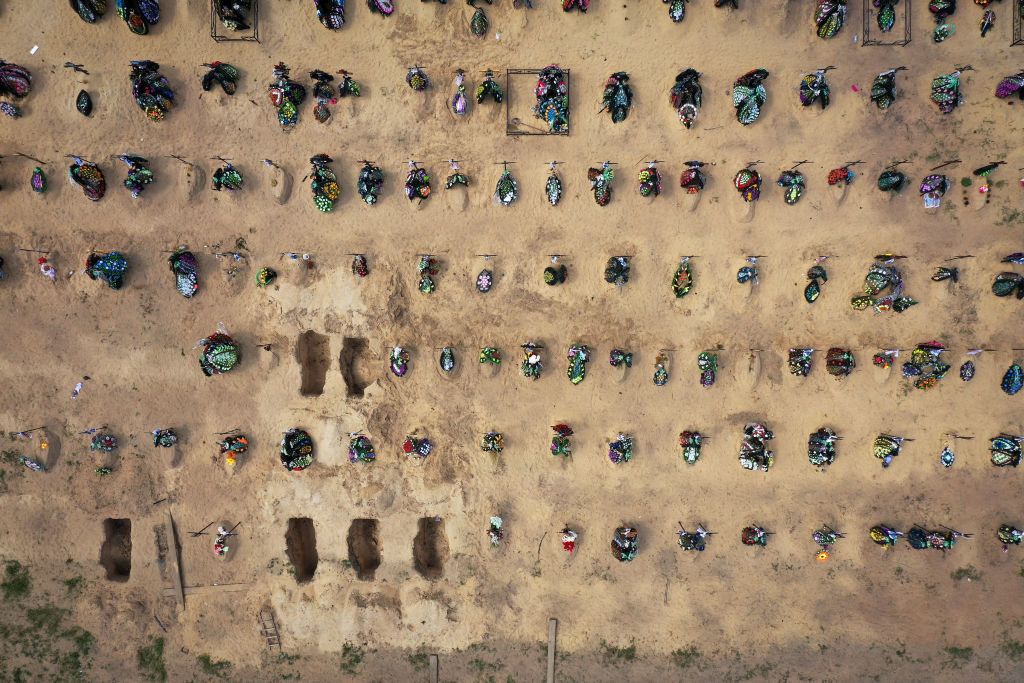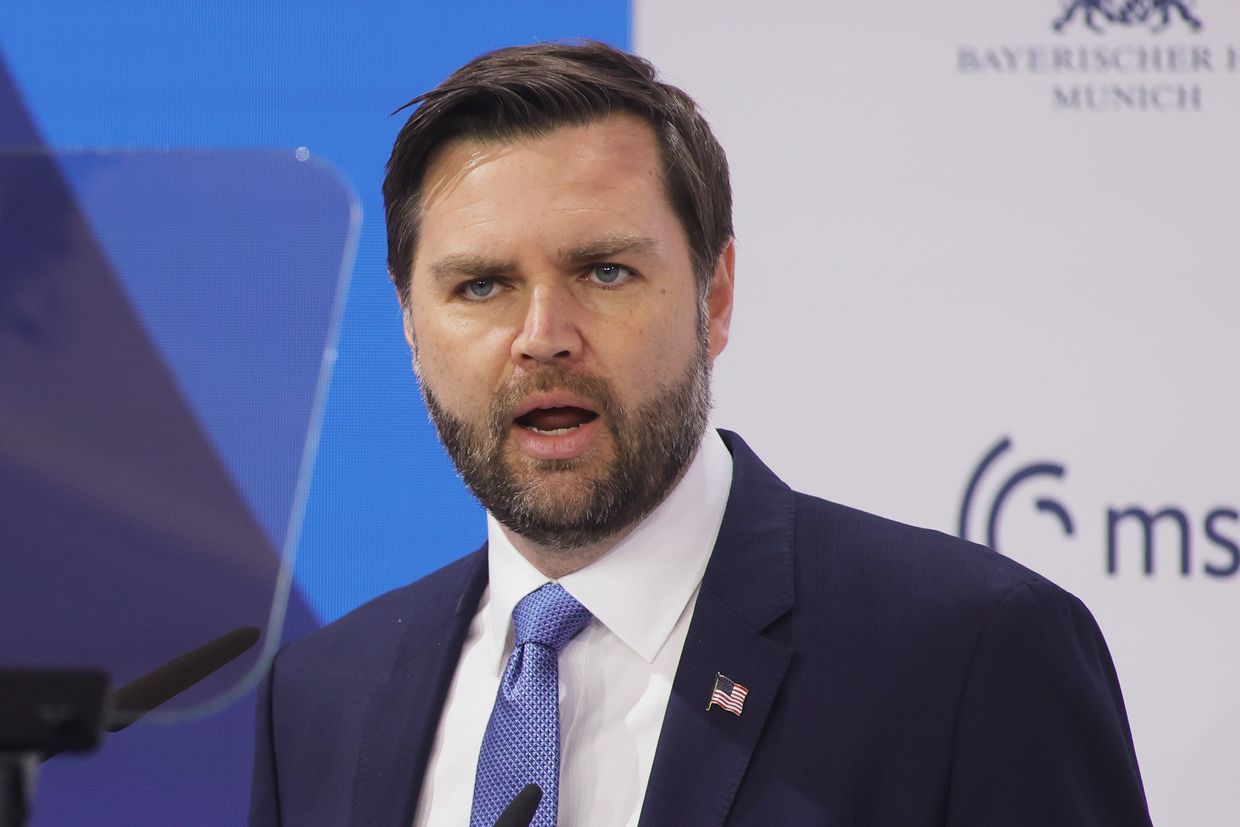In the spring of 2022, right after Russia’s atrocities in Bucha were exposed, several Western leaders uttered the term “genocide.” U.S. President Joe Biden, former U.K. Prime Minister Boris Johnson, former Colombian President Ivan Duque, and Canadian Prime Minister Justin Trudeau did so in short succession, albeit in their own way.
“I called it genocide because it’s become clearer and clearer that (Russian President Vladimir) Putin is just trying to wipe out even the idea of being Ukrainian. The evidence is mounting,” Biden said in April 2022.
French President Emmanuel Macron categorically distanced himself from this cohort, however, refusing three times publicly to use the term “genocide” to describe Russia’s war crimes in Ukraine. In one interview, Macron rejected the term, “explaining” that Ukrainians and Russians are so-called “brotherly” peoples. In another interview, he highlighted the alleged “political inconvenience” of the term:
“States that consider that it is genocide have an obligation under international law to intervene. Is that what people want? I don’t think so.”
Macron explicitly acknowledged that he did not want to use the term “genocide” because it would impose certain obligations on him.
Professor William A. Schabas, a genocide expert featured in the Kyiv Independent’s War Crimes Investigations Unit’s documentary, “Destroy, in Whole or in Part,” dismisses claims that Russia’s actions in Ukraine constitute genocide, calling statements like that of Biden “political.” Schabas may be right in a sense: the term “genocide” is often thrown around for political purposes without much attention paid to the legal definition of the “crime of crimes.” However, Macron’s refusal to use the term is even more political.
The so-called inconvenience of the term “genocide” has a long and varied history, which is well explained in Samantha Power’s book “A Problem from Hell: America and the Age of Genocide,” for example. It’s not surprising that some Western politicians and officials not only avoid using the term to describe Russia’s atrocities in Ukraine today but also outright deny that it is taking place. The term is often extremely undesirable for politicians as it imposes a certain pressure to act.
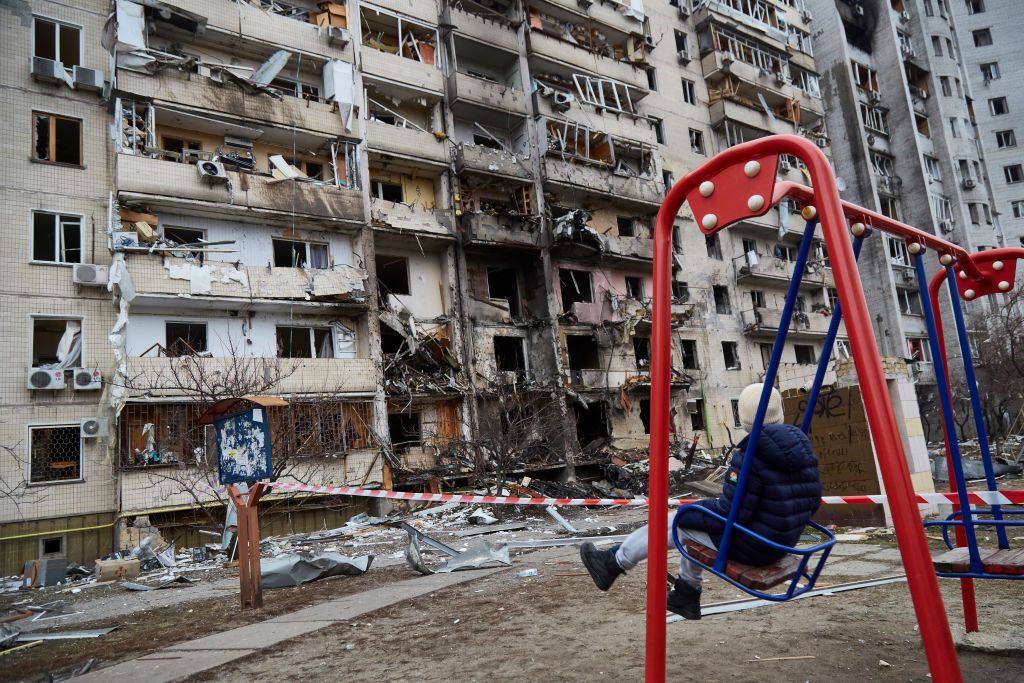
This political dimension has absolutely nothing to do with the question of whether genocide is actually taking place in Ukraine or not. However, it often coincides with the popular belief, often promoted politically, that genocide is necessarily the total extermination of a national or ethnic group, for instance, in the Holocaust, Rwanda, and Srebrenica. If the atrocities do not reach such a scale, there is no genocide, or so they say.
This understanding is due to ignorance of the real legal definition of genocide as enshrined in the Genocide Convention and the Rome Statute, although these doctrines are not without their own issues.
According to the Genocide Convention, genocide entails “acts committed with intent to destroy, in whole or in part, a national, ethnical, racial, or religious group,” including killing, causing serious bodily or mental harm, deliberately inflicting conditions for destruction, imposing measures intended to prevent births, and forcibly transferring children to another group.
This definition makes no mention of the number of victims, whether those involved are so-called “brotherly peoples,” or if other states are willing to intervene.
The key to understanding whether genocide is taking place or not is genocidal intent. As Schabas emphasizes in our documentary, if even two or three people are killed with the clear and unequivocal intention of destroying the group as such, then genocide has occurred.
On the one hand, everything seems quite obvious. It’s very easy to prove in court that Russia is committing crimes in Ukraine that fall within the internationally agreed-upon definition of genocide – particularly, the killing of civilians and the forced deportation of children. Besides, while Russia tries to deny that it is deliberately killing Ukrainian civilians, the forced deportation of children is openly advertised at the highest level of command.
On the other hand, actions alone are not enough. It’s necessary to prove genocidal intent unequivocally. Intent is on a plane of the intangible – it’s forever something vague, something that can be questioned. Intent is difficult to prove not only in court but also to public opinion outside of Ukraine (I think most Ukrainians no longer doubt Russia’s obvious intention to destroy the Ukrainian nation as such).
The blatantly genocidal rhetoric employed by Russian officials and propagandists can be done away with by calling it bellicose hate speech. The massacres committed by the Russian army can simply be attributed to wanting to crush potential resistance. The mass deportation of Ukrainian children can be justified by Russia's wanting to solve its demographic problems. Russia’s favorite game with reality is that “nothing is that clear” – perfect for concealing genocidal intent.
The unwillingness of politicians to give in to pressure, the masses’ lack of understanding, and the difficulty in proving genocidal intent all combine to create a very convenient ground for all those who want to dismiss the “inconvenient” term when talking about Russia’s war against Ukraine.
But even against this backdrop, Ukrainians should continue to speak out and prove that the intention behind Russia’s invasion of Ukraine is to destroy the Ukrainian nation, in whole or in part.
This is not to somehow ease the suffering of the victims of the Russian military’s war crimes in Ukraine. Their pain will not become lesser or greater because what was done to them has been labeled a “war crime,” “crime against humanity,” or “genocide.” And their sense of justice is also unlikely to be greatly affected by the qualification of the crime for which a Russian criminal is imprisoned.
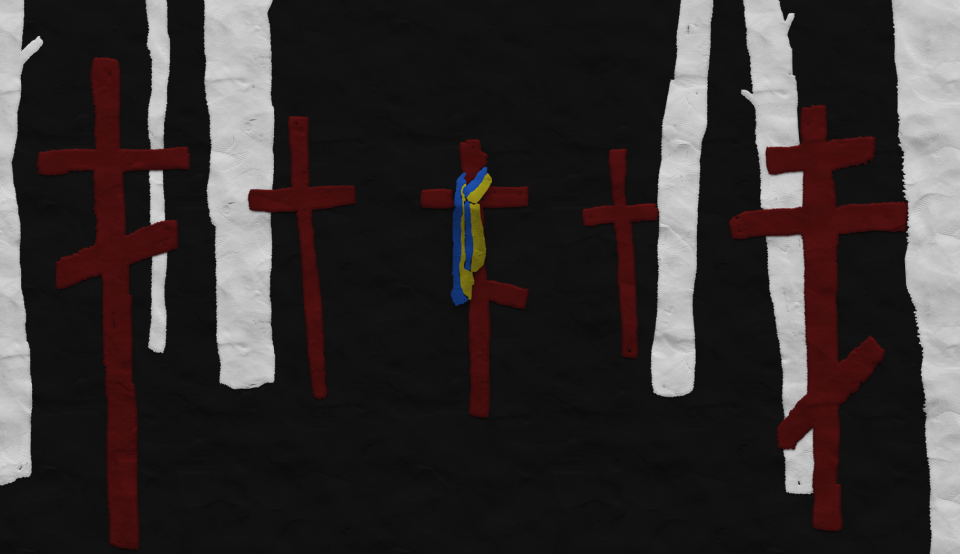
Proving genocidal intent is instead necessary to understand Russia’s current war against Ukraine and its preconditions. As Ukrainian academic Dmytro Koval emphasizes in our documentary, the history of this war and the reasons for Ukrainians’ suffering at the hands of the Russian state cannot be fully recounted and explained without the term “genocide.”
While Ukrainians also need to come to this understanding, it is, above all, the world, which is accustomed to a distorted perception of Ukraine through the prism of Russian historiography or Western prejudice, that must do so. Foreign politicians, officials, and ordinary citizens who today reject the word "genocide" when talking about Russia’s war are thus rejecting the key to understanding what is happening in Ukraine. We must continue to offer this key.
Editor’s Note: The opinions expressed in the op-ed section are those of the authors and do not purport to reflect the views of the Kyiv Independent.
